
Organizing a festival is a monumental task that requires thorough planning, creativity, and attention to detail. Whether you’re planning a local community fair, a music festival, or a cultural celebration, having a robust festival planning guide will ensure your event is memorable and impactful. In this article, we’ll explore how to create a comprehensive festival planning guide that leaves lasting impressions on attendees.
1. Define the Purpose and Vision
Start by defining the purpose of your festival. What experience do you want to create for your attendees? Your vision should encompass the festival’s theme, target audience, and the emotions you want to evoke. For instance, a music festival might focus on promoting new artists, while a cultural festival could aim to celebrate heritage.
2. Establish a Budget
Budgeting is a crucial step in your festival planning process. You’ll need to account for venue rentals, permits, marketing, staffing, entertainment, and various operational expenses. Create a detailed spreadsheet to track your projected versus actual expenses. Being diligent about your budget helps prevent financial woes as you draw closer to the festival date.
3. Choose the Right Location
The venue you select sets the tone for your festival. Consider factors like capacity, accessibility, amenities, and the overall atmosphere. Additionally, ensure that your chosen location has the necessary licenses and permits for hosting an event.
4. Plan Your Programming
Your festival programming is what will draw attendees. Schedule diverse activities, performances, and workshops that align with your festival’s theme. Include a mix of entertainment such as live music, guest speakers, art installations, and food vendors.
5. Staffing and Volunteers
An event is only as good as the crew behind it. Enlist skilled staff and enthusiastic volunteers who share your passion for the festival. Clearly define roles and responsibilities to streamline operations. Regular training sessions leading up to the event will ensure everyone is well-prepared and on the same page.
6. Marketing and Promotion
Marketing your festival effectively is key to attracting attendees. Use a mix of social media platforms, email newsletters, and local advertising. Create eye-catching visuals and engaging content that resonates with your audience. Utilizing SEO-optimized keywords in your promotions will also enhance your online visibility.
7. Ensuring Safety and Security
Safety should always be a priority at any festival. Develop a comprehensive safety plan that includes emergency procedures, crowd management, first aid stations, and partnerships with local law enforcement. Clear communication with attendees about safety measures will help create an atmosphere of trust.
8. Post-Festival Evaluation
Once your festival concludes, gather feedback from attendees, staff, and volunteers. Conduct surveys or hold debrief meetings to discuss what went well and what could be improved for future events. This evaluation process is vital for growth and enhancement in subsequent years.
9. Creating Lasting Impressions
To make a lasting impression, prioritize unique experiences, such as interactive installations or memorable performances. Utilize technology like VR or AR to enhance attendee engagement. Encourage social media sharing by creating designated photo spots or using hashtags that promote your festival.
10. Document the Experience
Capture the essence of your festival through photography and videography. High-quality content can be used in marketing materials for future events and serves as a great way to keep the festival memories alive. Consider creating a highlight reel or a photobook to share with attendees and stakeholders.
Conclusion
A well-structured festival planning guide can lead to success and unforgettable experiences. Tailor each aspect of your guide to align with your festival’s unique vision, and don’t forget the importance of post-event analysis for continual improvement. With the right approach, your festival will not only be enjoyed but remembered long after the event is over.
Organizing a festival is a monumental task that requires thorough planning, creativity, and attention to detail. A well-structured festival planning guide can lead to success and unforgettable experiences. 
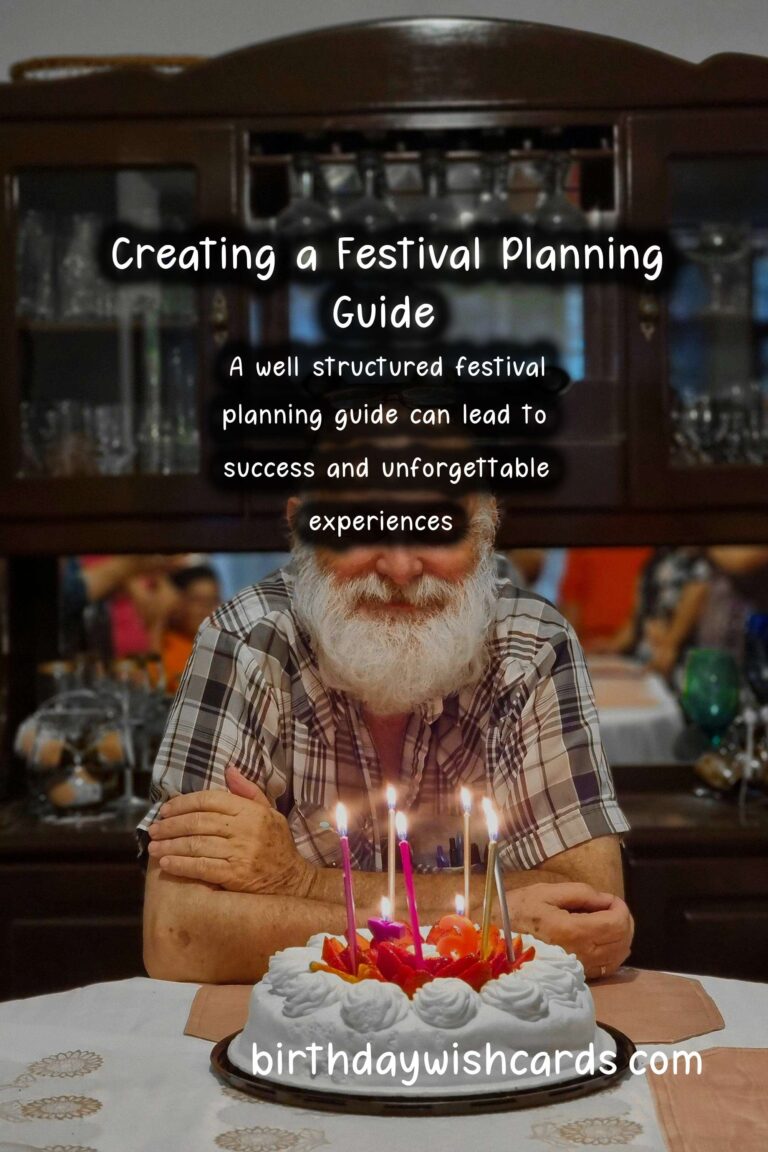
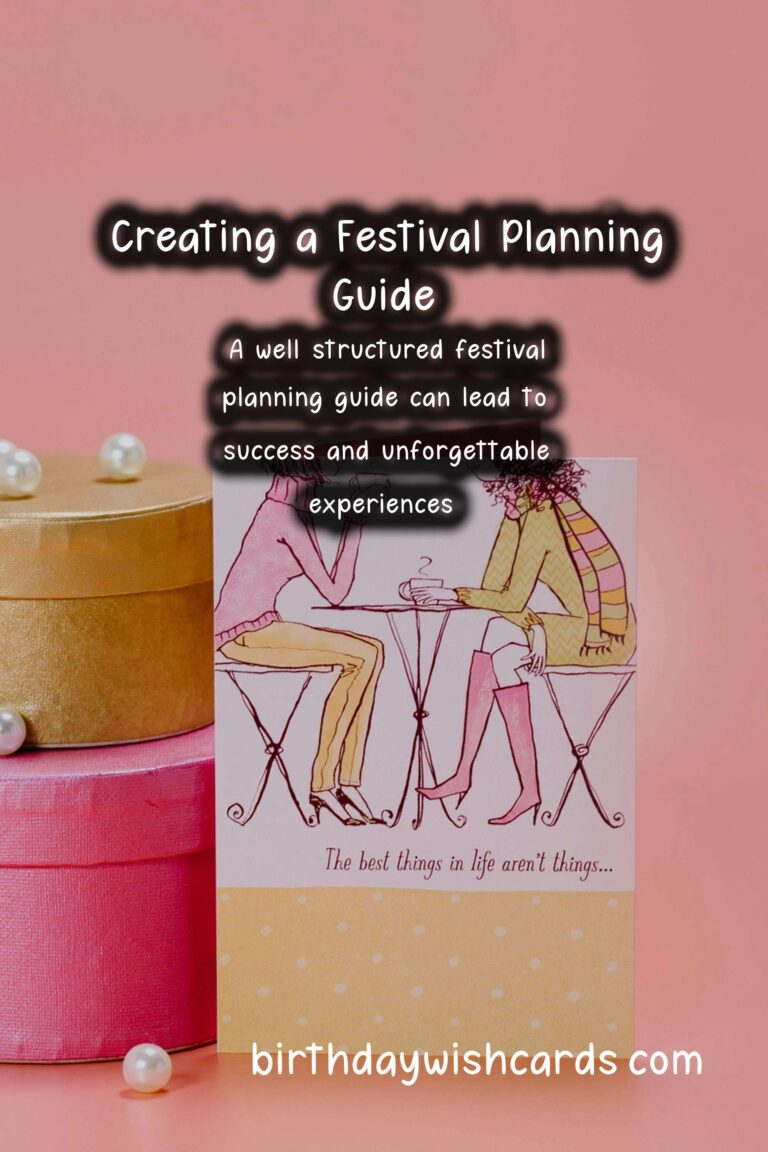
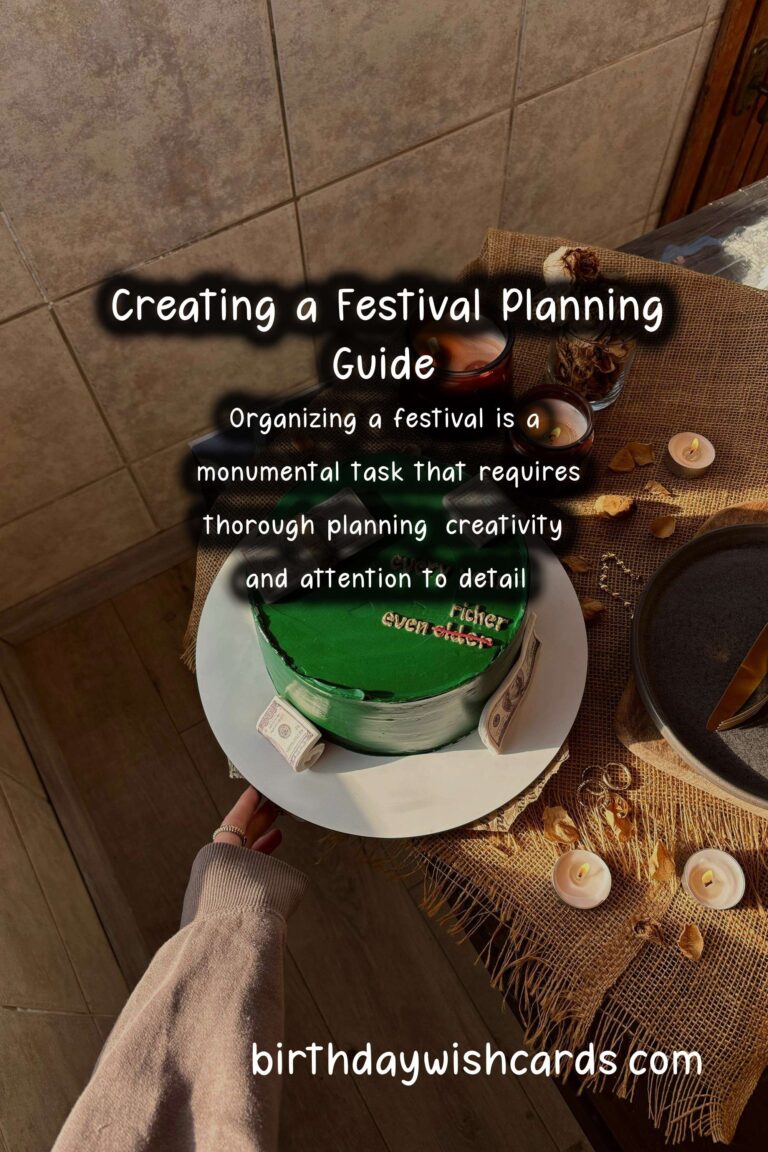
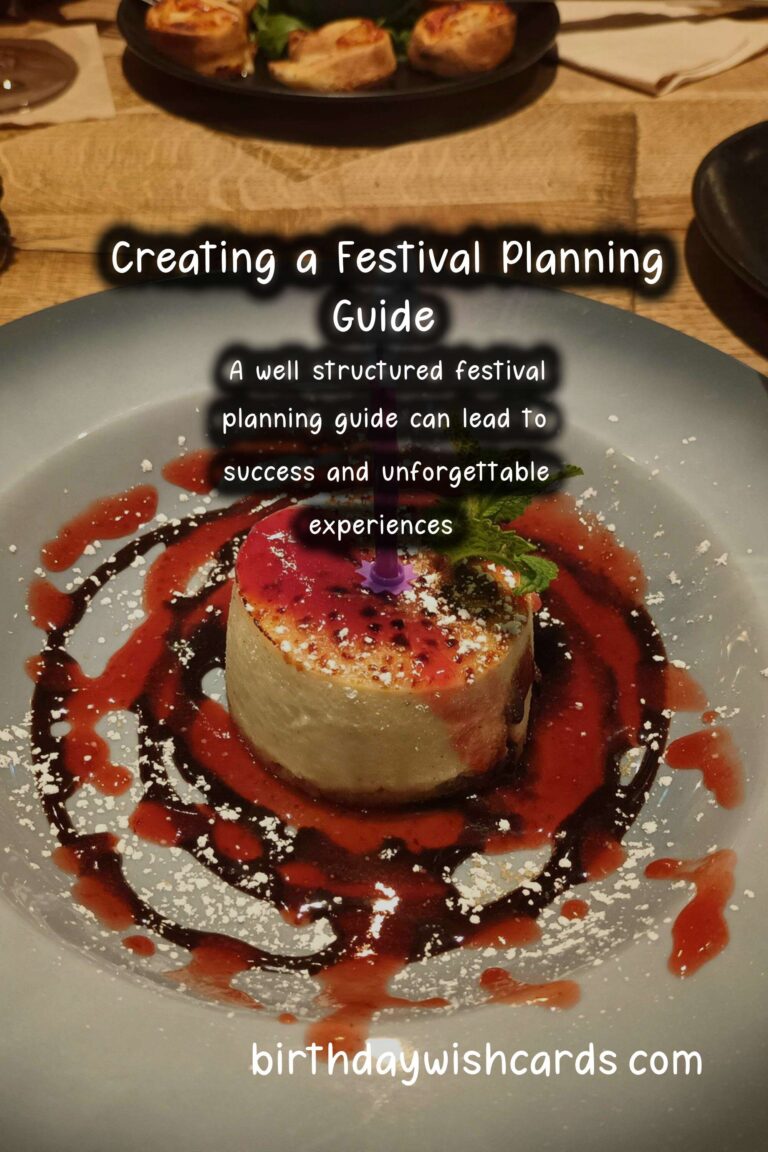
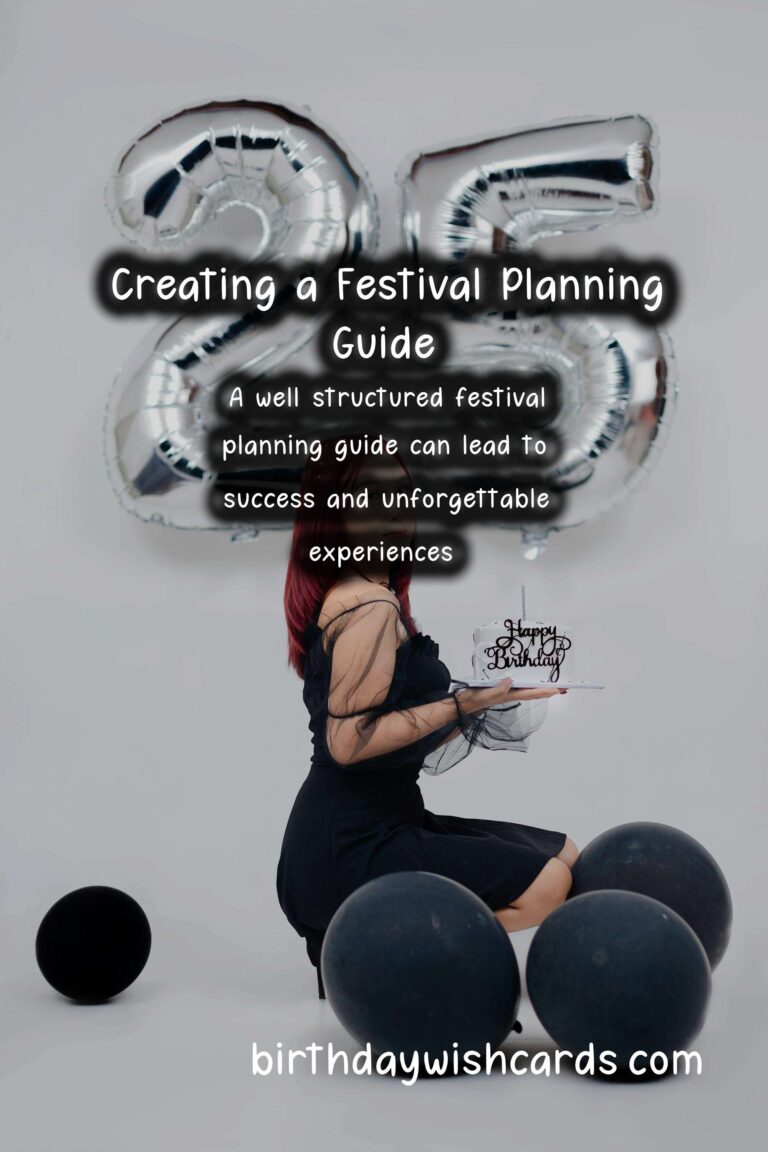
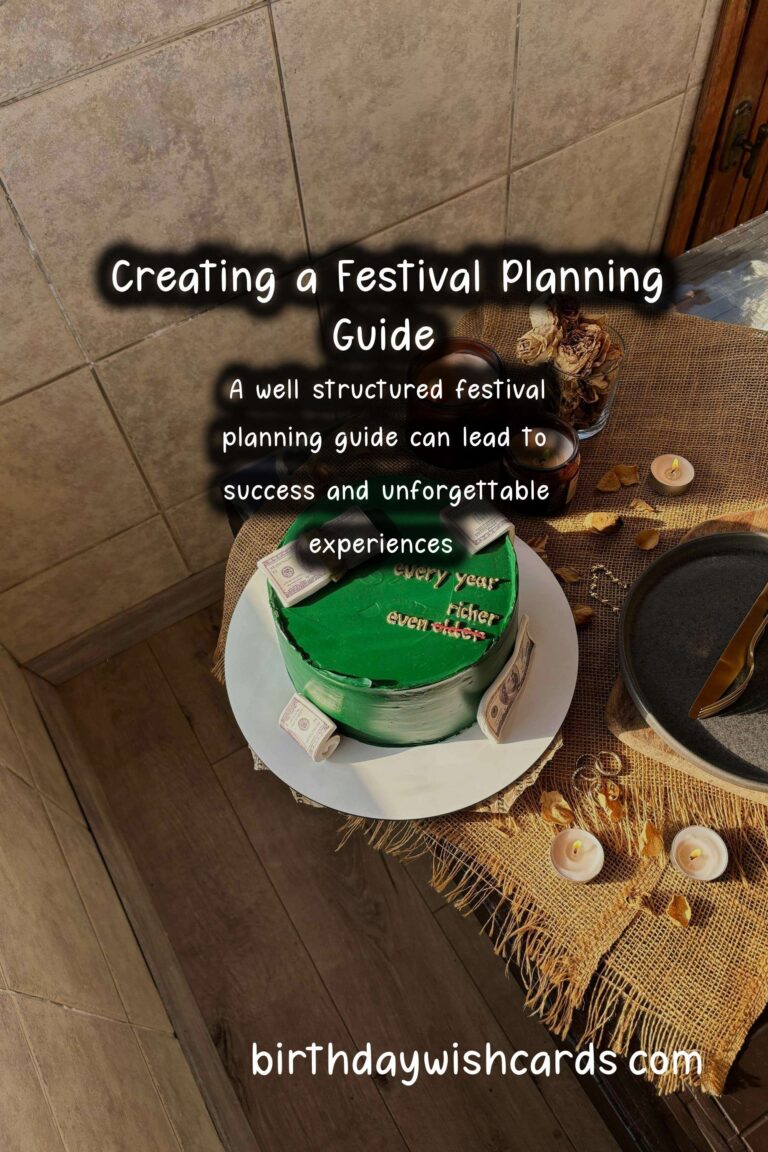
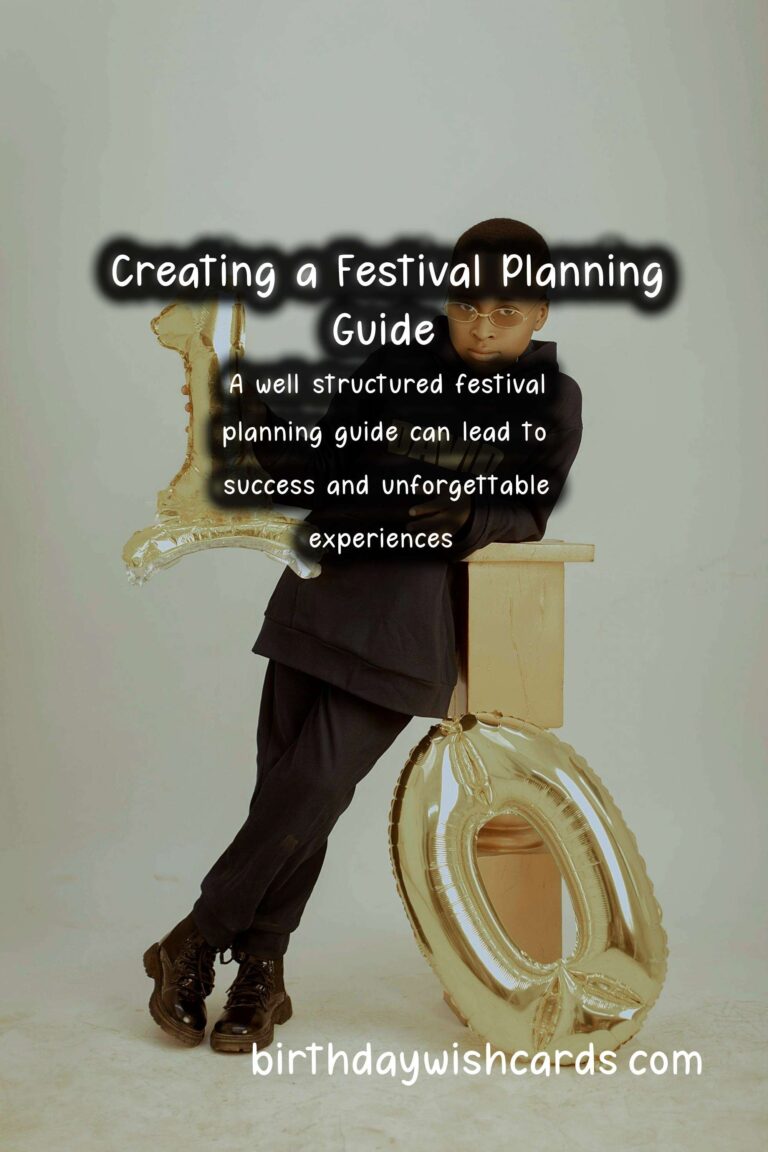
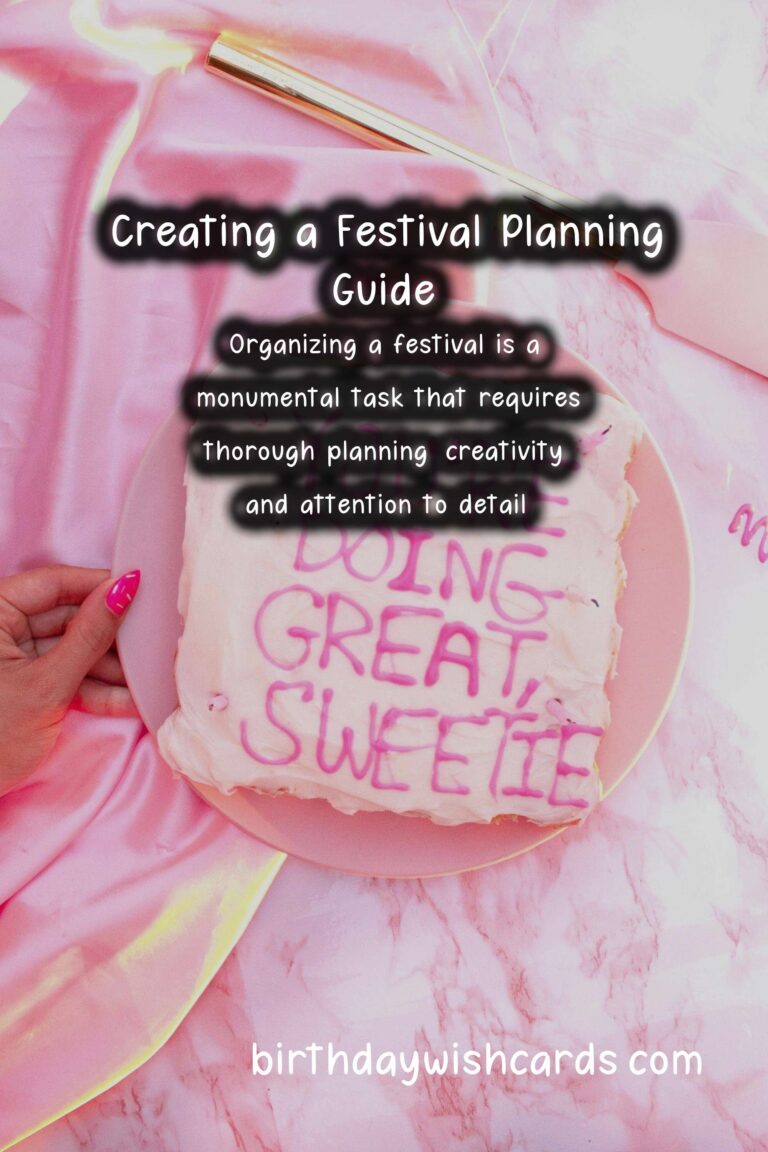
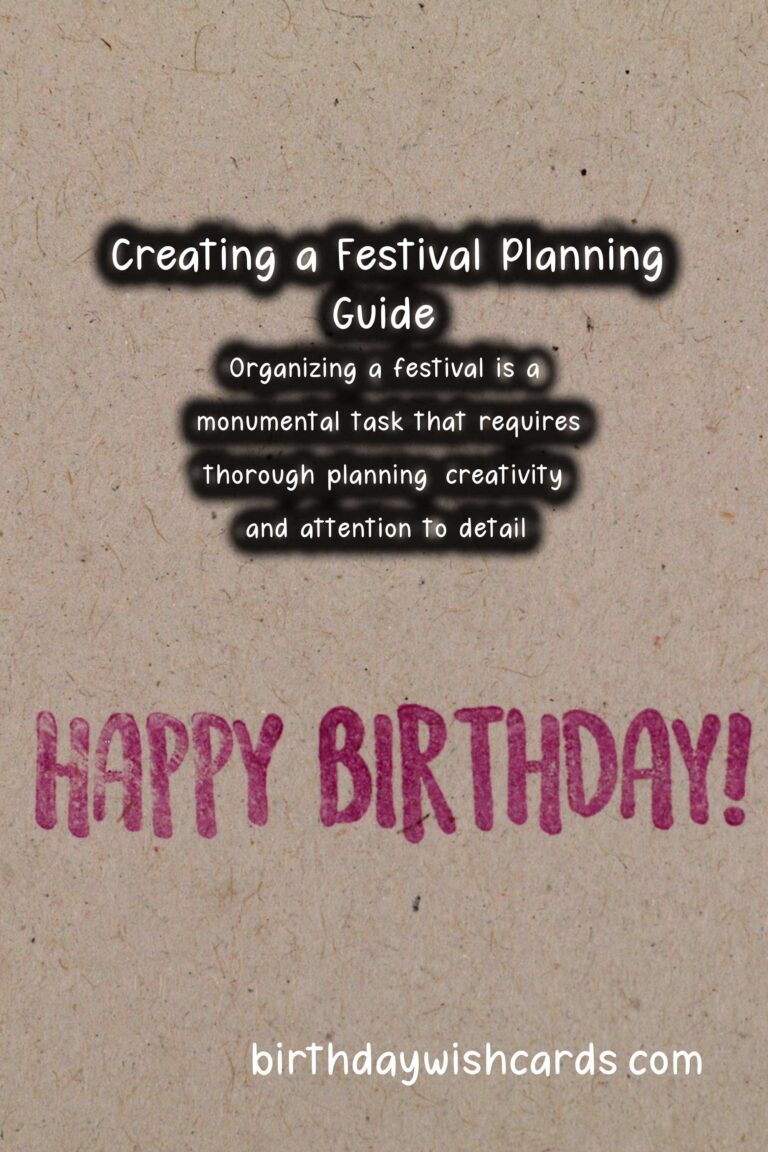
#FestivalPlanning #EventManagement




